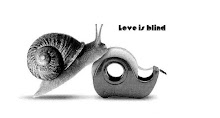
I will write about my impressions and thoughts that this poem produced in me.
In order to understand the whole picture of this poem it is compulsory to read and reflect, first, on the title and also to reflect on each subtitle.
The waste Land immediately calls the reader to think of an empty land, to a place where there is nothing but misery and pain. The title speaks by itself and invites us to locate ourselves in the emptiness.
The first subtitle is The burial of the dead and, as the main title, located us again in a dark place, where the process of death is taking place. The second subtitle is A game of chess and it makes us think, what do death and game have to do with each other? Here, T. S. Eliot plays with our problem of understanding the meaning of the poem when he presents death and game in the same train of thought, within this poem. The third subtitle is The fire sermon and it tempts us to try to guess what sermon was the one that appears in this part. The fourth subtitle is Death by water and as it is regular in the author’s mood, death is again present. The last subtitle is What the thunder said, here the image of nature, especially a thunder that depicts the power of nature beyond men’s power.
If we analyze the five subtitles we can infer that the meaning of the poem has to do with a desert place, where there is death, where there is worldly needs, where religion seeks its place in a without faith world, a place where nature is angry with humans because of the harm they have done upon it. This the waste land that T. S Eliot is depicting; where he is hopeless in the lonely nothingness.















